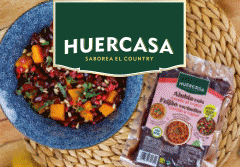BASF is extending its leafy produce portfolio with new developments in Little Gem, Romaine, Mini Romaine and Iceberg.
The BASF installations in La Palma (Cartagena) once again opened their doors to celebrate their traditional Lettuce & Spinach Demo Field; this time with strict health and safety measures due to the pandemic. In personalised visits, the new developments that complete the crop cycle in Spain could be seen, adding more resistances and bringing greater versatility. New materials with which they intend to bring satisfaction and, in many cases, get ahead of the chain’s requirements. These are grouped into four areas: Flavour and Appearance; Technology (high density varieties aimed at obtaining maximum efficiency for mechanised harvesting); Chef Lettuce (specially designed for using in sandwiches, hamburgers or snacks, with homogeneous, crunchy and consistent leaves) and Convenience (Fresh Cut Range, making online consumption easier with the healthy food trend.)
In the Iceberg category, in which the Nunhems brand is a specialist, they are launching two varieties to close the cycle: Segobia (winter) and Recilia (winter and spring), which have been added to Goldiva. The new material is very flexible with resistances, bringing quality to the product as the ribs are not very obvious. Both are rustic, with good size and shape and resistances to mildew and aphids. Segobia behaves well against Big Vein and Recilia stands out due to its plasticity, with a 3-month transplant period.
In the Romaine segment, they have added Boratal for the national market. This ‘traditional’ Romaine is for winter productions and its high tolerance to tip burn and sprouting make it stand out, as well as for its strength, large volume and straight, heavy heart.
In Mini Romaines, Winbee (2nd year on the market), for late winter and spring stands out, with high tolerance to tip burn; and they also have NIN 06574 in development, which brings strength for the winter and total resistance to mildew and aphids.
In Little Gem they presented Theras (autumn-winter), which is resistant to aphids and has good behaviour against mildew and tip burn. It has double aptitude for heads and hearts (very straight) and a very attractive dark green colour.
Another important crop for BASF is spinach, the potential growth in production and consumption has meant they have doubled their efforts in development. Currently, the company has a portfolio that covers the entire cycle: for slow growth (summer) Hydrus stands out; for medium growth (autumn-spring), there are Dracus and Alcor and for rapid growth (winter), Regor and Nembus. They are high yield varieties, with good colour and resistance to all the different types of mildew (1-17).
At the same time, they are developing new materials to respond to the problems derived from the chemical restrictions imposed by the EU to control grasses and leaves, which are causing the proliferation of Damping off, normally caused by Fusarium.





















